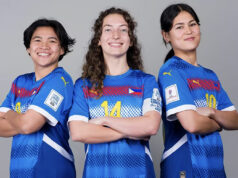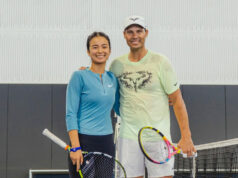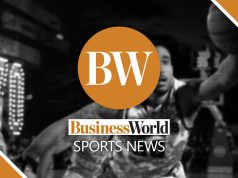Novak Djokovic is seething. He’s being subjected to a “witch hunt,” he said, for having hosted a multi-leg event that had to be scrapped after four players, himself included, tested positive for the novel coronavirus. In an interview published the other day on the Serbia-based sports daily Sportski Zurnal, he noted that he: 1) had only good intentions in trying to steer tennis to some semblance normalcy; 2) spearheaded the event while complying with regulations to ensure public safety; 3) scrapped the remainder of the Adria Tour as soon as he got wind of the test results; 4) apologized after admitting he restarted the sport too early.
“My intention was pure,” Djokovic argued. “I was wholeheartedly committed to organizing a humanitarian event to help players and tennis federations in the [Balkan] region.” For good measure, he added that “we complied with all the laws and regulations.” And he’s right. He might have even felt a compelling need to do so given his status as World Number One and president of the Association of Tennis Professionals Player Council.
That said, he would do well to remember the adage about the road to hell being paved with good intentions. As he admitted, “we’ve learned our lessons and some things could have probably been done in a different way.”
Which, to be sure, is putting it mildly. Before competing at the Novak Tennis Centre in Belgrade, Djokovic and Company played football and even went partying in a night club. They then traveled to Zadar for the second leg, where they likewise played basketball and mingled with children in a public forum. In other words, they acted as if they couldn’t be touched by the virus or be carriers and transmit it to those who could. In this regard, he’s being disingenuous in describing the ensuing criticism as a “witch hunt.” With a worldwide death toll already breaching the half-million mark and total cases hitting eight figures and counting, he should have been more — make that much more — circumspect.
Significantly, Djokovic is now approaching his schedule with more caution. He says he’s still undecided on whether to participate in the United States Open; “the upsurge in registered COVID-19 cases in the United States and New York in particular are not playing into the event’s hands.” On the other hand, his continuing quest for validation is precisely what may yet spur him to claim a sixth title at Flushing Meadows next month. As an important aside, he has 17 major titles and is just two back of Rafael Nadal and three behind Roger Federer in the count. Considering all the uncertainty, the need to maximize his prime years, and competition from the new wave of stars, he cannot keep on foregoing chances.
The big picture is clear: Djokovic is motivated by his aim to carve a place as the sport’s first among equals — and not just on the court. It’s why he has taken on the burden of heading the Player Council despite all the accompanying headaches, and why he seems defensive and extra-sensitive to negative opinions. Then again, it’s not as if some of his wounds haven’t been self-inflicted. When he insists “energetical transformation, through the power of prayer, through the power of gratitude, [can] turn the most toxic food or the most polluted water, into the most healing water,” he’s espousing beliefs that run counter to science. When he’s highlighting the supposed dangers of vaccination in the face of the actual dangers of the virus, he’s being careless at best.
When it comes to tennis, though, Djokovic has no peer at this time. And, in this regard, he would do well to make decisions simply on the basis of his strengths as a player. Countryman, fellow Grand Slam champion, and current coach Goran Ivanisevic has opined that, perhaps, he would be better off just letting go of extraneous activities and concentrating on his craft. After all, when the battlesmoke clears, he will secure his status on the sport based on how he did with a racket in hand.
Anthony L. Cuaycong has been writing Courtside since BusinessWorld introduced a Sports section in 1994. He is a consultant on strategic planning, operations and Human Resources management, corporate communications, and business development.



